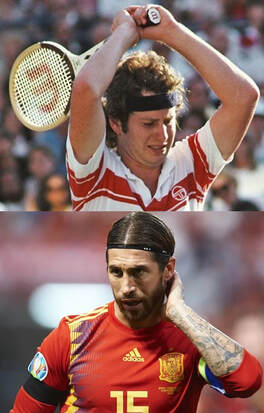
Giving the writer a fair hearing is always a good idea. However, I probably restrained my critical faculties too much on my first reading of a 2018 paper by Scott Kretchmar (published in Quest). The subtitle of the paper caught my attention – “Why Playing Games Counts as Smart” – but it was the presentation of the argument that I most enjoyed. Kretchmar says that when he was younger he somewhat bought into the “unintelligent jock” argument. He does not launch a full frontal assault on this view. He just has a bit of fun with it. In the course of the paper he says “if game intellection led the way into culture – how deliciously ironic that would be”. He presents his argument but does not seek to beat the reader over the head with it.
Kretchmar says that science, art, and sport are human actions based on expertise. He goes on to argue that a commitment to expertise is a commitment to excellence. Walker and Wooders come at the same idea but from a difference angle. They use data from professional sports because “the participants have devoted their lives to becoming experts at their games”. Their results lends support to the argument that expert jocks adopt the strategies that the theorists recommend. The players play minimax at Wimbleton.
Similar findings are presented by Ignacio Palacios-Huerta in his book Beautiful Game Theory. Here we find soccer players rather than tennis players. In the first chapter Palacios-Huerta examines the behaviour of participants in penalty kicks. The expert jocks perform as the theorists recommend. The first chapter is called “Pele meets John von Neumann in the Penalty Area”.
The second chapter is called “Vernon Smith meets Messi in the Laboratory”. Here our expert jocks are taken from the field of play. They are taken from their highly pressurised comfort zone and placed in the somewhat artificial environment of a laboratory. Here they play non-physical games with similar characteristics. Again, the expert jocks come up trumps. They demonstrate something like transferable skills and more abstract reasoning skills. Or maybe we are witnessing the commitment to excellence that Kretchmar describes.
Vernon Smith shared the 2002 Nobel Prize in Economics. His work in experimental economics explains the title of Chapter 2 from Beautiful Game Theory. In recent years, he has advocated that economics needs to reconsider the great works of his 18th century namesake (Adam Smith), e.g. Humanomics: Moral Sentiments and the Wealth of Nations for the twenty-first century (2019). In that spirit it is worth quoting from The Wealth of Nations (1776).
“The difference between the most dissimilar characters, between a philosopher and a street porter, for example, seem to arise not so much from nature, as from habit, custom, and education. When they come into the world … neither their parents nor play-fellow could perceive any remarkable difference … they come to be employed in very different occupations. The difference of talent comes then to be taken notice of, and widens by degrees, till at last the vanity of the philosopher is willing to notice scarce any resemblance.”
Smith poked fun at the vanity of the intellectual over the physical. Kretchmar does likewise.
 RSS Feed
RSS Feed